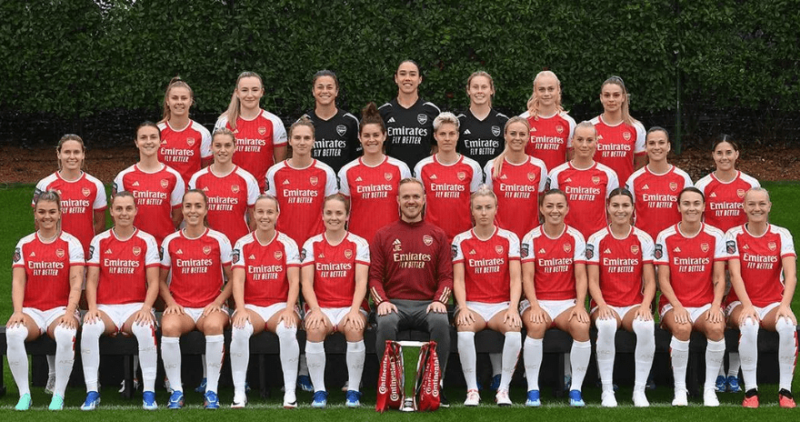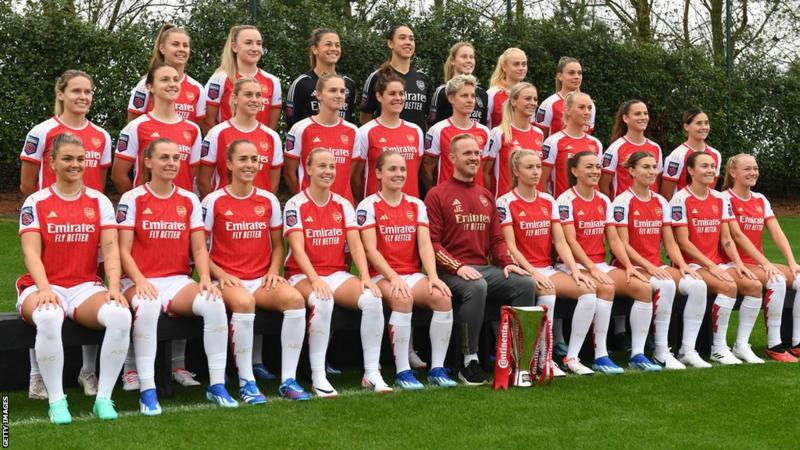Arsenal have publicly committed to improving diversity within their women’s team.
The announcement follows criticism of the club’s 2023-24 women’s squad photo, which did not feature any black, Asian, or ethnic minority players.
The club’s response offers a glimpse into its broader strategy for increasing representation and inclusivity in football.

Arsenal have stated that increasing diversity is a “key priority” following criticism over the lack of ethnic minority representation in their women’s team photo for the 2023-24 season.
The photo, which was published on Arsenal’s social media platforms earlier this month, features 27 players and head coach Jonas Eidevall.
It has drawn criticism for not including any black, Asian or ethnic minority players.
“We acknowledge our current women’s first-team squad does not reflect the diversity that exists across the club and the communities we represent,” the club said in an official statement.
The statement also highlighted Arsenal’s historical pride in having players from diverse backgrounds contribute to the club’s history, success, and culture across all its teams, including the men’s and women’s academies.
The club’s acknowledgment of the need for greater diversity comes amid broader scrutiny of representation in women’s football.
Earlier this year, a review into the sport, led by former Lioness Karen Carney, cited the need for increased diversity both on and off the pitch.
Fern Whelan, an ex-Brighton defender, asserted in the report that the issue required urgent attention.
Statistics indicate vast room for improvement in representation across the Women’s Super League (WSL).
As of 2021, it was estimated that between 10 and 15% of players in the WSL were from black, Asian or minority ethnic backgrounds.
This is in contrast to England’s Euro 2022-winning squad, which included three mixed-heritage players: Jess Carter, Nikita Parris, and Demi Stokes.
Despite their inclusion, none of these players were part of the starting 11 that remained largely unchanged during the tournament.
Similarly, Carter and Lauren James were the sole ethnic minority players in England’s Women’s World Cup squad this summer, where the team finished as runners-up to Spain.
Arsenal further commented on their commitment to diversity at the grassroots level: “Increasing participation among young women and girls from diverse backgrounds is a key priority for us at academy level, with specific measures in place to improve pathways and accessibility.”
The club added that it is a priority to continue to drive greater diversity and inclusion and to create a sense of belonging for everyone connected to Arsenal.
The discussion around diversity in Arsenal’s women’s team is part of a larger conversation about inclusivity in football.
With a growing focus on representation, both on and off the pitch, Arsenal’s acknowledgment of the issue and commitment to addressing it might serve as an important step towards more inclusive practices across the sport.

